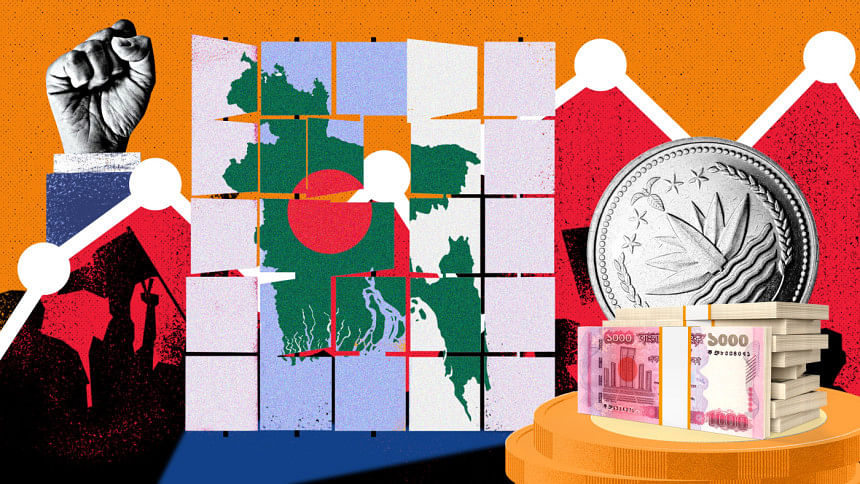

Md Tarek Hossain: Bangladesh’s economy continues to struggle, with little relief in sight as the country heads towards a national election. Despite efforts by the interim government, economic pressures have remained high, affecting millions of ordinary citizens.
Recent data shows that GDP growth has slowed sharply to just 2.3 % this year, down from over 6 % in previous years. Inflation has surged past 12 %, with food prices rising by 16 %, hitting low- and middle-income families hardest. Many households are struggling to meet basic needs, and experts warn that nearly three million more people could fall into extreme poverty by the end of 2025.
The flow of remittances from overseas Bangladeshis has dropped by 11 %, while youth unemployment now exceeds 28 % – one of the highest in South Asia. The banking sector has seen limited reforms, but investor confidence remains low. The capital markets, though showing some gains in market value recently, have yet to restore long-term trust among domestic and institutional investors.
Political unrest adds to the economic uncertainty. In recent weeks, clashes between protesters and police in Gopalganj left four people dead. Meanwhile, communal tensions in Khagrachhari have drawn criticism from neighbouring India, straining diplomatic ties. These incidents highlight the challenges the government faces in maintaining both security and stability during a sensitive election period.
The central bank has approved a budget of 7.9 trillion taka for the 2025–26 fiscal year, yet doubts remain over the government’s ability to implement policies effectively. Experts warn that without careful management, these financial measures may not provide the relief needed by ordinary citizens.
With the election scheduled in the coming months, political divisions have slowed progress on key economic reforms. Citizens are anxious, as economic growth, job opportunities, and the cost of living remain major concerns. Analysts stress that long-term stability will depend on both effective governance and political cooperation across party lines.
For Bangladesh, the challenge is clear: the country must address economic pressures while navigating political uncertainty, if it is to protect livelihoods and restore public confidence in the lead-up to the election. Without decisive action, the strain on families and businesses is likely to continue.
